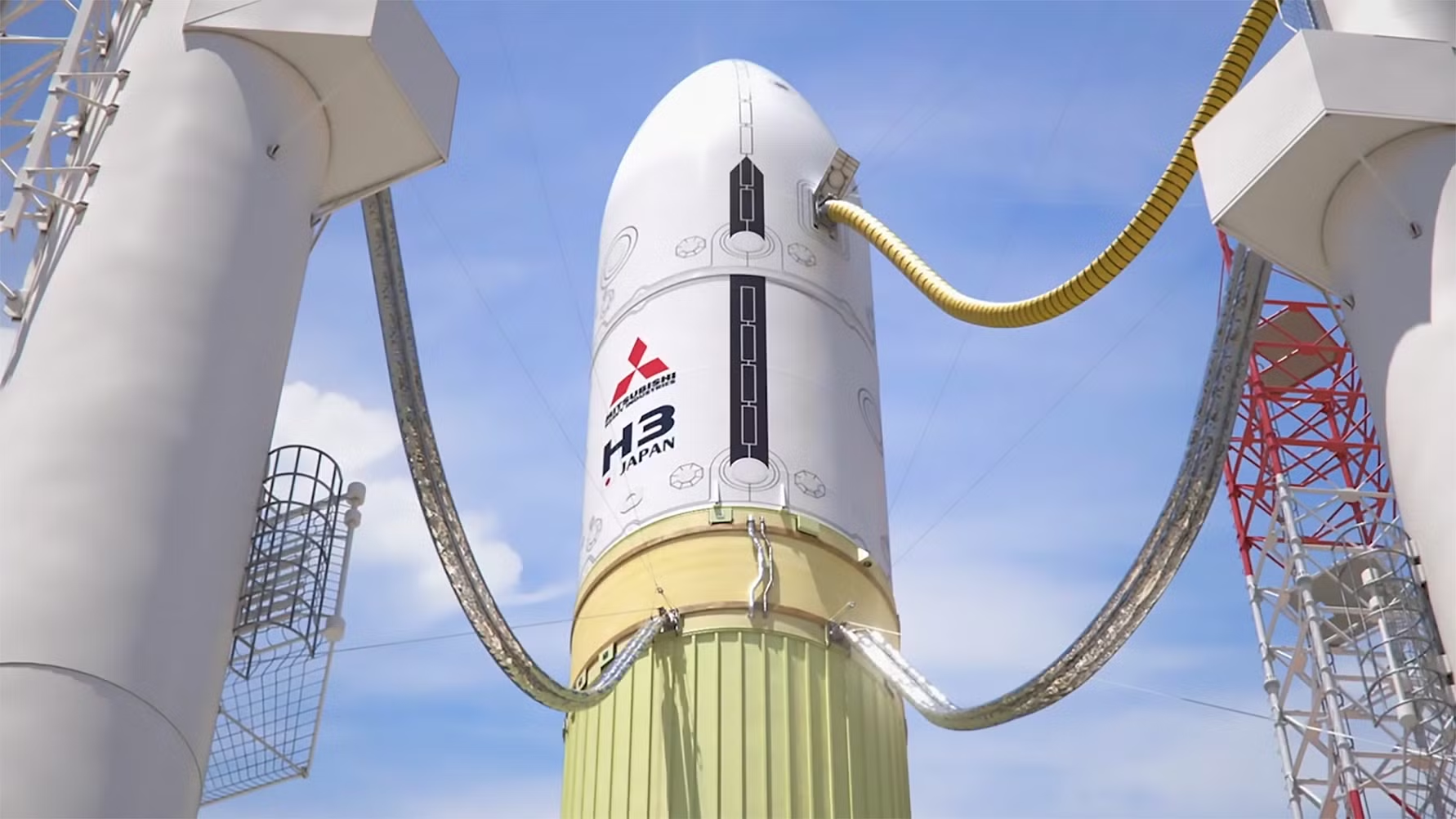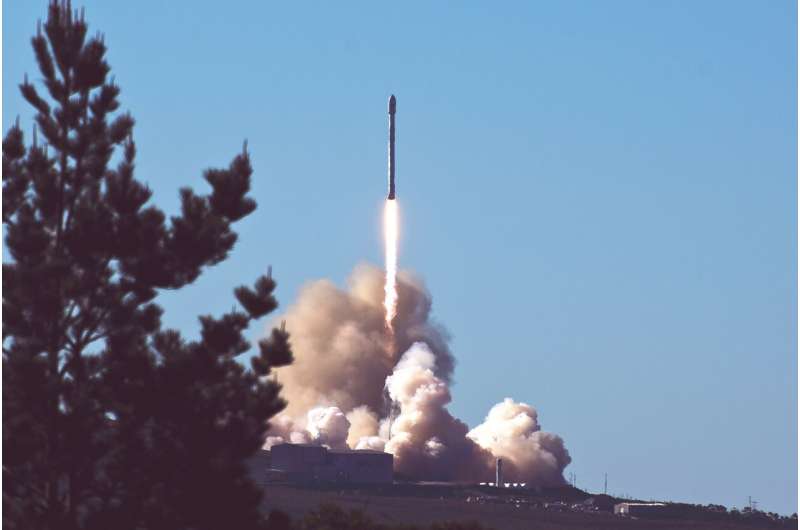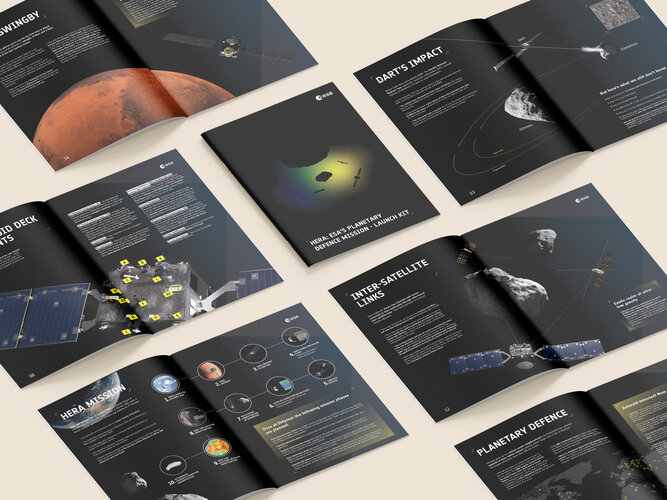There could be a way to fix spacecraft at L2, like Webb and Gaia
Wednesday, 18 September 2024 13:21
Billions of dollars of observatory spacecraft orbit around Earth or in the same orbit as our planet. When something wears out or goes wrong, it would be good to be able to fix those missions "in situ." So far, only the Hubble Space Telescope (HST) has enjoyed regular visits for servicing.
What if we could work on other telescopes "on orbit?" Such "fixit" missions to other facilities are the subject of a new NASA paper investigating optimal orbits and trajectories for making service calls on telescopes far beyond Earth.
Webb’s new view of Arp 107
Wednesday, 18 September 2024 13:00 Image:
Webb’s new view of Arp 107
Image:
Webb’s new view of Arp 107 Eutelsat signs multi-launch agreement for MHI’s H3 rocket
Wednesday, 18 September 2024 12:57

Eutelsat said Sept. 18 it has signed a contract to use multiple H3 rockets from 2027 in the French fleet operator’s first launch agreement with Japan’s Mitsubishi Heavy Industries.
FAA wants to fine SpaceX more than $600,000 for Space Coast launch site violations
Wednesday, 18 September 2024 12:50
The Federal Aviation Administration announced Tuesday it is seeking more than $600,000 in fines against SpaceX for violating licenses from its Space Coast launch sites.
In a press release, the FAA detailed its proposed civil penalties for a June 18, 2023 launch from Cape Canaveral Space Force Station's Space Launch Complex 40 and a July 28, 2023 launch from Kennedy Space Center's Launch Pad 39-A.
The combined fine of $633,009 is for what the FAA alleges to be SpaceX's failure to follow its license requirements for those two launches, according to the release. The fines follow civil penalty guidelines that are set in federal statutes, the FAA stated.
"Safety drives everything we do at the FAA, including a legal responsibility for the safety oversight of companies with commercial space transportation licenses," FAA Chief Counsel Marc Nichols said in the release. "Failure of a company to comply with the safety requirements will result in consequences."
For the Canaveral launch, the FAA said that in May 2023, SpaceX had submitted a request to revise its communication plan to its existing license that wanted to add a new launch control room at Hangar X and remove a T-2 hour readiness poll from its procedures.
SpaceX pushes booster recovery limits with satellite launch
Wednesday, 18 September 2024 12:40
SpaceX pushed one of its most-used boosters to its limits with a launch Tuesday evening from Cape Canaveral, Florida.
A Falcon 9 rocket using a booster for the 22nd time managed a successful recovery landing even though it was used to fly its payload, a pair of the European Commission's Galileo L13 satellites, to a medium-Earth orbit. The last time SpaceX flew such a mission, it didn't even try to recover the booster because it required more propellant than a low-Earth orbit mission.
Liftoff came at 6:50 p.m. Eastern time from Cape Canaveral Space Force Station's Space Launch Complex 40, and the booster stuck the landing on the droneship Just Read the Instructions a little more than eight minutes later.
SpaceX had to expend a booster, meaning let it fall back into the Atlantic, for the Galileo L12 mission back in April so SpaceX could provide the performance needed to get the payload to orbit.
"Data from that mission informed subtle design and operational changes, including mass reductions and trajectory adjustments, that will allow us to safely recover and reuse this booster," SpaceX posted on its website ahead of the new mission.
Hera asteroid mission launch kit
Wednesday, 18 September 2024 12:17
Hera asteroid mission launch kit
Everything you'd ever want to know about ESA's first planetary defence mission
The expanding opportunity for American and Indian space cooperation
Wednesday, 18 September 2024 12:00
NASA selects Intuitive Machines for lunar communications and navigation services
Wednesday, 18 September 2024 10:25

ESA seeks better coordination of European space spending
Wednesday, 18 September 2024 09:05

Sentinel-2C to Vega and orbit – fit-check to liftoff timelapse
Wednesday, 18 September 2024 09:00 Video:
00:03:02
Video:
00:03:02
From the arrival of Earth-obversation satellite Sentinel-2C in July 2024 and the first fit-check to launch on the from Europe’s Spaceport in French Guiana, this timelapse shows how the third Sentinel 2 satellite was prepared for launch. The last Vega rocket, flight VV24, lifted off on 5 September at 03:50 CEST (4 September 22:50 local time).
Sentinel-2C will provide high-resolution data that is essential to Copernicus – the Earth observation component of the European Union’s Space programme. Developed, built and operated by ESA, the Copernicus Sentinel-2 mission provides high-resolution optical imagery for a wide range of applications including land,
Lockheed Martin wins contract to supply geostationary lightning mappers
Wednesday, 18 September 2024 06:33

Rivada says Lockheed deal boosts investor confidence in constellation
Tuesday, 17 September 2024 23:22

Space Force chief urges readiness for new era of competition
Tuesday, 17 September 2024 20:32

U.S. Space Force chief endorses commercial satellite data program
Tuesday, 17 September 2024 19:14



